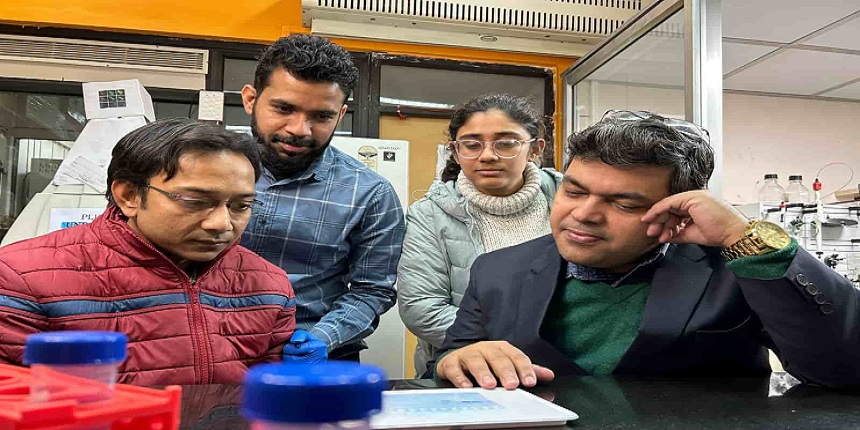IIT Kanpur's research findings on receptor proteins to help cure cancer, brain disorders
Anu Parthiban | January 5, 2024 | 04:53 PM IST | 2 mins read
IIT-K: This ground-breaking finding on Receptor Proteins has been recognized internationally with its publication in the international journal, Science.

NEW DELHI: Indian Institute of Technology Kanpur (IIT Kanpur) researchers study of G protein-coupled receptors (GPCRs) and chemokine receptor D6 has opened up the possibility to help find solutions for cancer and brain disorders such as Alzheimer’s and Parkinson’s disease.
This ground-breaking finding on Receptor Proteins has been recognized internationally with its publication in the international journal, Science.
“The researchers visualized the atomic details of the receptors. The information from this major advance opens up the possibility of designing new drug-like molecules to modulate these receptors under disease conditions,” the institute said.
The findings will help in treatment of conditions such as Alzheimer's, which affects over 50 million people worldwide, and cancer, responsible for over 10 million deaths annually.
How will 'Receptor Proteins' help in treating disease?
The discovery will help in developing new drug-like molecules, which will be tested for their therapeutic potential in animal models.
The researchers said: “G protein-coupled receptors (GPCRs) are like tiny antennas on the surface of brain cells which help them to communicate and play a key role in many brain functions. When these receptors don’t work properly, there are issues with communication between the brain cells leading to diseases like Alzheimer's and Parkinson's. This leads to the symptoms and progression seen in these diseases.”
Similarly, the chemokine receptor D6 functions in the immune system and is involved in the response to inflammation. In cancer, the receptor can influence the tumour environment, affecting how the cancer cells grow and spread.
IIT Kanpur research team worked with scientists from Japan, the Republic of Korea, Spain, and Switzerland. It said that the collaboration has enhanced the understanding of complex diseases and also highlights India’s position as a leader and the institute’s aim to address health challenges.
The research team from the laboratory of GPCR Biology, IIT Kanpur included Arun K Shukla, department of biological sciences and bioengineering and principal investigator GPCR Lab; Ramanuj Banerjee, postdoctoral fellow; Manish Yadav, postdoctoral fellow; Ashutosh Ranjan, postdoctoral fellow, currently faculty at Lucknow University; Jagannath Maharana, PhD scholar now heading to the Max Planck Institute of Molecular Physiology as a postdoctoral fellow; Madhu Chaturvedi, PhD scholar now heading to UCSF as a postdoctoral fellow; Parishmita Sarma, PhD student; Vinay Singh, project JRF, now headed to IMPRS on Cellular Biophysics, Frankfurt as a PhD student; Sayanatan Saha, project research fellow; and Gargi Mahajan, project research fellow.
Follow us for the latest education news on colleges and universities, admission, courses, exams, research, education policies, study abroad and more..
To get in touch, write to us at news@careers360.com.